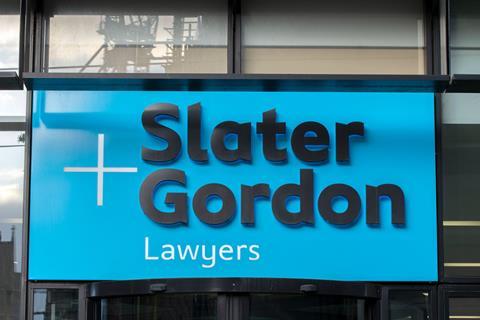Hearings in an attempt by national firm Slater and Gordon to try to prevent former clients from recovering deductions taken from their damages opened in the High Court this morning. In Slater and Gordon v Edwards the firm is asking the court to stay the claims from 10 test clients now represented by Clear Legal, trading as checkmylegalfees, on the basis that it did not enjoy costs protection if the claims were lost.
Slater and Gordon also challenged the decision of a costs judge last year to order disclosure of audio recordings of the calls made by Slater and Gordon when claims handlers initially signed up the clients.
But in the first morning of submissions, Mr Justice Ritchie repeatedly challenged Slater and Gordon counsel Robert Marven QC to justify why the firm should refuse disclosure when it was also relying on the details of the checkmylegalfees retainer for its appeal.

He also asked whether the ‘objective view’ might be that it looks like a ‘big firm bullying a little firm by arguing every issue’ and then objecting to the costs being accrued.
Marven denied that Slater and Gordon was acting in an ‘oppressive’ way and argued that these were controversial issues of wider importance to the personal injury sector. ‘I entirely accept this is hard-fought litigation,’ he added. ‘This was never going to be a case which was dealt with by a costs draftsman.’
Marven accused checkmylegalfees of offering a ‘false promise’ to clients through offering indemnities where the outcome is doubtful.
‘If it is the case that claimants are advancing claims on the basis they have been promised indemnity [if they lose], the person promising that indemnity is potentially not good for the money,’ said Marven. ‘It is certainly a problem for my clients – if we were to win and the indemnity doesn’t stand up we would face the choice of not enforcing our right to costs or enforcing it against our former clients.’
Marven added that current claimants had been ‘repeatedly assured this was a risk-free enterprise’ but suggested that the evidence of their retainers showed the risk of litigation being unsuccessful had not been properly addressed.
He said: ‘[The evidence] is conspicuous by its silence of any calculation of what their exposure might be.’
On disclosure, the judge said Slater and Gordon appeared to have had a ‘remarkable volte face’ by refusing to disclose details of its contact with former clients while making assumptions based on the retainers with checkmylegalfees clients.
The judge told Marven: ‘When you have a good old whinge that Clear Legal did not produce clear evidence of their retainer I am struggling to see how Slater and Gordon can make the argument they should not do the same.’
Ritchie also indicated his belief at the outset of the hearing that the burden of proof on informed consent – which is a constant element of so many of these costs disputes – should lie with the solicitors who make the deductions – in other words it is for firms like Slater and Gordon to show that informed consent was given.
The hearing continues.


























